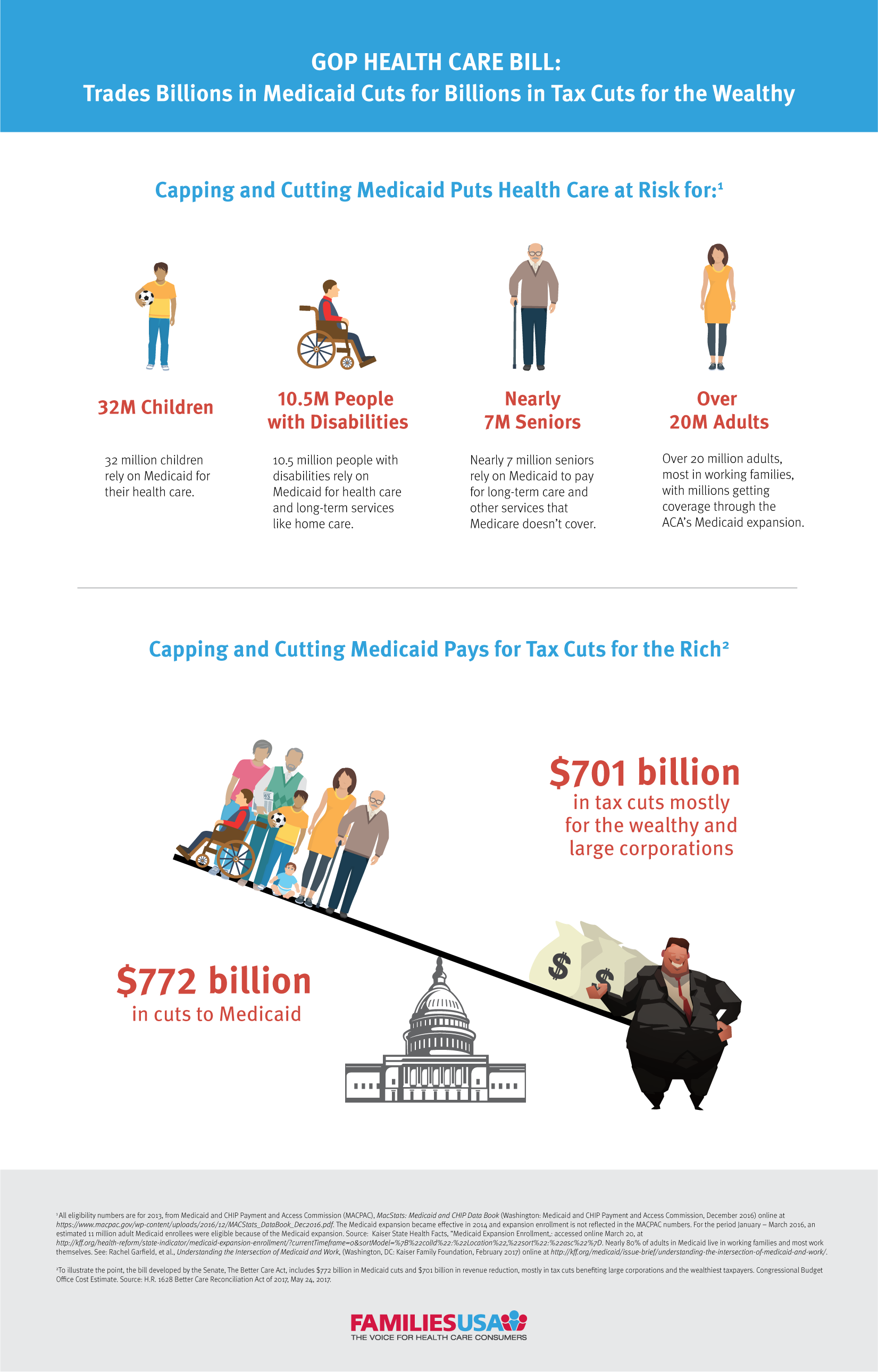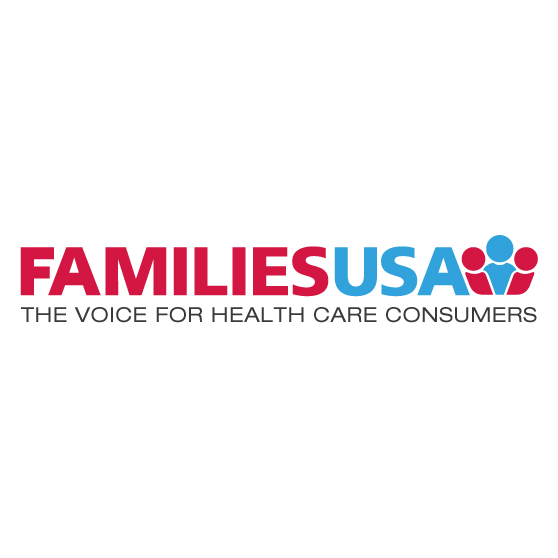Republicans Seek to Pay for Tax Cuts for the Rich on the Backs of the Poor
06.20.2017
On the way to repealing the Affordable Care Act (ACA), Republicans have decided to tack on a major restructure of the entire Medicaid program, capping and cutting America’s health insurance program for lower-income people.
Whose health care do Republicans jeopardize by capping and cutting Medicaid?
Medicaid serves as a health care safety net for our nation’s most vulnerable populations:
- Over 32 million children rely on Medicaid for their health care.
- 10.5 million people with disabilities rely on Medicaid for health care and long-term services like home care.
- Nearly 7 million seniors rely on Medicaid to pay for long-term care and other services that Medicare doesn’t cover.
- Over 20 million adults, most in working families, with millions getting coverage through the ACA’s Medicaid expansion.1
Why change Medicaid’s structure since that doesn’t have anything to do with repealing the ACA?
Because capping and cutting Medicaid is how Republicans are finding the money to pay for the tax cuts for the rich and large corporations that are in their health plan.
How do we know that? Republican bills to repeal the ACA have included massive tax cuts, mostly benefiting the rich and large corporations, offset by massive cuts to Medicaid.2
Capping and cutting Medicaid is happening to pay for tax cuts for the rich on the backs of the poor.

Endnotes
1All eligibility numbers are for 2013, from Medicaid and CHIP Payment and Access Commission (MACPAC), MacStats: Medicaid and CHIP Data Book (Washington: Medicaid and CHIP Payment and Access Commission, December 2016) online at https://www.macpac.gov/wp-content/uploads/2016/12/MACStats_DataBook_Dec2016.pdf. The Medicaid expansion became effective in 2014 and expansion enrollment is not reflected in the MACPAC numbers. For the period January – March 2016, an estimated 11 million adult Medicaid enrollees were eligible because of the Medicaid expansion. Source: Kaiser State Health Facts, “Medicaid Expansion Enrollment,: accessed online March 20, at http://kff.org/health-reform/state-indicator/medicaid-expansion-enrollment/?currentTimeframe=0&sortModel=%7B%22colId%22:%22Location%22,%22sort%22:%22asc%22%7D. Nearly 80% of adults in Medicaid live in working families and most work themselves. See: Rachel Garfield, et al., Understanding the Intersection of Medicaid and Work, (Washington, DC: Kaiser Family Foundation, February 2017) online at http://kff.org/medicaid/issue-brief/understanding-the-intersection-of-medicaid-and-work/.
2To illustrate the point, the bill passed by House Republicans on May 4, 2017, the American Health Care Act, included $834 billion in Medicaid cuts and $992 billion in tax cuts, mostly benefiting large corporations and the wealthiest taxpayers. Congressional Budget Office Cost Estimate, American Health Care Act, May 24, 2017, available online at https://www.cbo.gov/system/files/115th-congress-2017-2018/costestimate/hr1628aspassed.pdf




